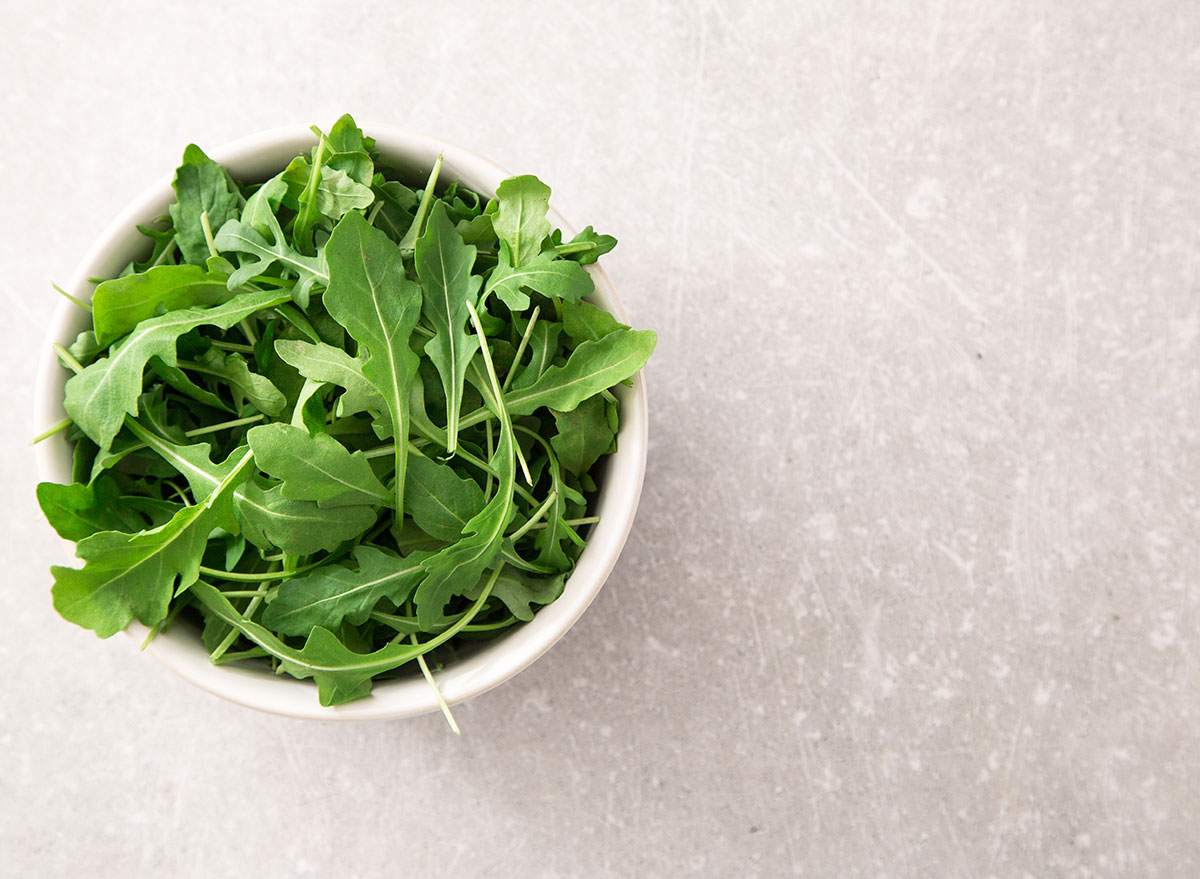Secret Effects of Eating Arugula, Says Science

Arugula is the underrated, peppery vegetable you likely don’t eat enough of on a regular basis. Whether you enjoy it as a garnish on a pizza topped with other colorful veggies or as the primary green in your salad at lunch, there’s no shortage of ways you can incorporate arugula into your diet.
The green veggie is considered to be a cruciferous vegetable and there are plenty of studies to suggest that this type of vegetable can help improve your overall health. Below, you’ll see three potential health benefits linked to cruciferous vegetables as well as one thing to be cautious of when eating arugula.
Then, don’t miss What Happens To Your Body When You Eat Leafy Greens.
May reduce the risk of cancer.

Believe it or not, eating more cruciferous veggies like arugula may help lengthen your life. One 2017 meta-analysis linked eating more vegetables with a reduced risk of developing cancer. This is likely because cruciferous veggies such as arugula contain phytonutrients or plant-based compounds that have been shown to decrease inflammation levels in the body. Researchers also found that cruciferous vegetables may reduce your chances of death from any cause.
May be protective of your heart health.

The same meta-analysis found that increased consumption of fruits such as citrus fruits, apples, and pears as well as veggies such as leafy greens and cruciferous ones all helped were associated with a reduced risk of developing cardiovascular disease.
In addition, a 2018 study published in the Journal of the American Heart Association suggested that consuming a diet that’s rich in cruciferous veggies like arugula may help to reduce the risk of atherosclerosis—when the walls of your arteries become clogged with plaque (fats and cholesterol)—in older women.
Check out These Snack Foods May Help Prevent Heart Disease, New Study Says to see other foods that may protect your heart.
May help to precent osteoporosis.

Arugula is rich in calcium and vitamin K, both of which are known to support bone health. One 2015 review points out that while inadequate calcium intake could lead to decreased bone mineral density, taking supplements of the mineral could accelerate the deposit of calcium in blood-vessel walls and ultimately raise the risk of heart disease. If taken in tandem with vitamin K, however, it could improve the way the body absorbs and excretes calcium.
Don’t consume too much if you’re on blood thinners.

Because arugula contains a good amount of vitamin K, if you’re taking blood thinners you may want to consider limiting your intake of vitamin K. This is because vitamin K assists with blood coagulation, which could undo the efforts of blood thinner medication. Speak with your doctor for more insight on how much vitamin K you should be consuming daily.
For more, be sure to check out 5 New Facts About Heart Disease Prevention You Need to Know Right Now!